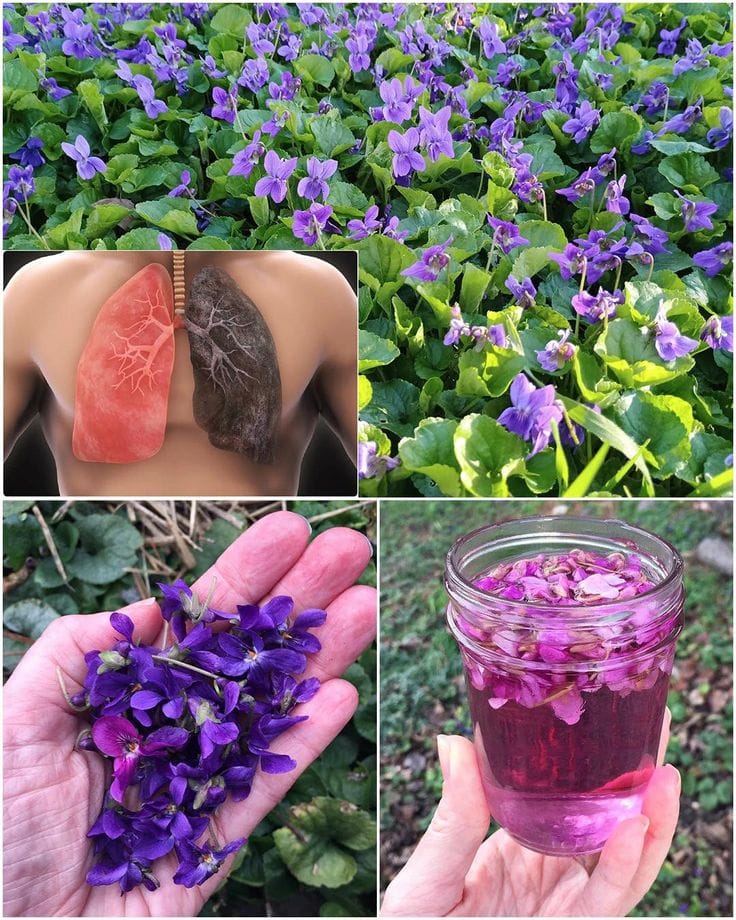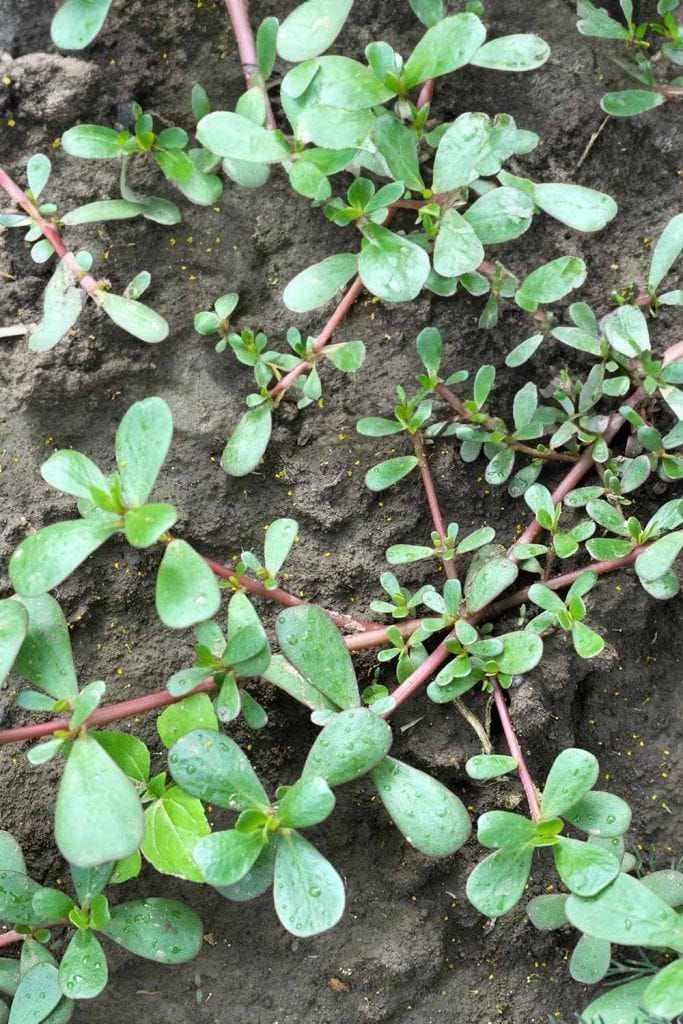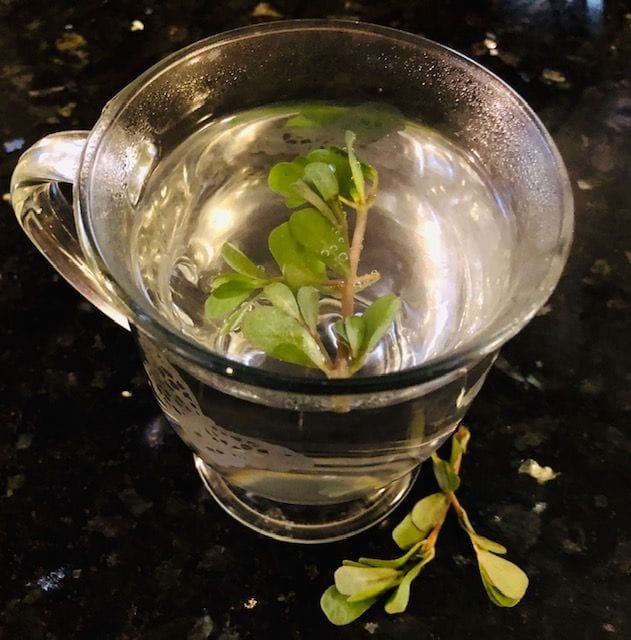Have you spotted a small, leafy green plant crawling in the corners of your garden or growing between cracks in your driveway? You might be unknowingly sitting on a treasure trove of nutrition and healing—this so-called weed is actually pure gold. Meet purslane (Portulaca oleracea), a humble plant that’s been overlooked for far too long.
In this article, you’ll discover why purslane is a superfood, how it benefits your health, how to identify it, and how to use it. By the end, you’ll realize why this little green gem deserves a permanent spot in your garden—and your diet.
What Is Purslane?
Purslane is a succulent green plant with smooth, reddish stems and fleshy, spoon-shaped leaves. Native to India and the Middle East, it now grows wild across the globe. While many gardeners pull it out like a weed, purslane is actually one of the most nutritious plants you can eat.

Why Purslane Is Nature’s Gold
Most people don’t know that purslane is packed with omega-3 fatty acids, vitamins, antioxidants, and essential minerals. In fact, it has more omega-3s than some fish oils—which is especially valuable for vegetarians and vegans.

Nutritional Breakdown (Per 100g of fresh purslane):
- Omega-3 fatty acids (ALA): 400 mg
- Vitamin A: 44% of RDI
- Vitamin C: 35% of RDI
- Magnesium: 17% of RDI
- Potassium: 13% of RDI
- Iron: 11% of RDI
- Calcium: 6% of RDI
This small plant can easily compete with spinach, kale, and even salmon when it comes to nutrition. If you’re growing it without realizing its value—you’re sitting on gold!
10 Powerful Health Benefits of Purslane

1. Rich in Omega-3s
Purslane contains alpha-linolenic acid (ALA), a plant-based omega-3 fatty acid known to reduce inflammation, protect your heart, and support brain health.
2. Lowers Blood Pressure
Thanks to its high levels of potassium and magnesium, purslane can help relax blood vessels and reduce blood pressure naturally.
3. Supports Weight Loss
Low in calories but rich in fiber, purslane helps promote fullness and aids digestion—making it great for weight management.
4. Boosts Immune System
With its impressive dose of vitamin C and antioxidants, purslane strengthens your immune defenses and helps fight infections.
5. Controls Blood Sugar
Several studies suggest that purslane may help reduce fasting blood glucose levels, making it beneficial for people with type 2 diabetes.
6. Improves Gut Health
Its mucilaginous properties help soothe the digestive tract, while fiber feeds your good gut bacteria.
7. Fights Oxidative Stress
Loaded with beta-carotene, glutathione, and melatonin, purslane is a natural antioxidant powerhouse.
8. Promotes Skin Health
The high content of vitamin A and antioxidants promotes healthy skin, reduces acne, and delays aging.
9. Supports Bone Health
With magnesium, calcium, and vitamin K, purslane contributes to stronger bones and better bone density.
10. May Help Prevent Cancer
Some studies suggest that the antioxidants in purslane can help neutralize free radicals and reduce the risk of certain cancers.
How to Identify Purslane in Your Garden
Before you rush out to harvest, it’s crucial to know how to correctly identify purslane. It’s often confused with spurge, which is toxic.
Purslane characteristics:
- Leaves: Oval, thick, and succulent
- Stems: Smooth, reddish, and low-growing
- Flowers: Tiny yellow blooms
- Growth: Creeps along the ground in a mat-like pattern
Important Tip: Spurge has milky sap when cut—purslane does not. Always double-check before eating any wild plant.
How to Harvest and Store Purslane
Once you’ve identified it safely, you can start harvesting. The best time is in the morning when the plant is crisp and fresh.
Steps to Harvest:
- Use scissors or a clean knife to snip the stems.
- Rinse thoroughly to remove dirt or insects.
- Store in a paper towel inside a container in the fridge for up to 4 days.
Pro Tip: You can freeze purslane or dry it for long-term use in soups and stews.
How to Eat Purslane: Delicious Recipes
Purslane has a slightly lemony, peppery taste that’s refreshing and versatile. Here’s how you can incorporate it into your meals.
1. Purslane Salad
Mix with cherry tomatoes, cucumber, red onion, olive oil, and lemon juice. Add feta cheese for a Mediterranean twist.
2. Green Smoothie Booster
Add a handful of purslane to your green smoothie along with kale, banana, and pineapple.
3. Purslane Stir-Fry
Toss it into a veggie stir-fry just before serving to preserve its nutrients and crunch.
4. Eggs with Purslane
Mix chopped purslane into scrambled eggs or omelets for added nutrition.
Purslane: A Garden Ally, Not a Weed
If you’ve been pulling out purslane thinking it’s a nuisance, it’s time to reconsider. Not only is it edible, but it also improves your garden’s soil health. Purslane is drought-resistant and helps retain moisture for surrounding plants.
Plus, it attracts pollinators, making it a win-win for your garden’s ecosystem.
Can You Grow Purslane Intentionally?
Absolutely! Purslane is very easy to grow and thrives in poor soil and full sun. Simply sprinkle the seeds on top of the soil and water lightly. It will begin to sprout in just a few days.
Common Questions About Purslane
Is Purslane Safe to Eat Every Day?
Yes, in moderation. Like spinach, it contains oxalates, which can affect calcium absorption in large amounts. However, for most people, it’s perfectly safe and beneficial.
Can You Juice Purslane?
Yes! Add it to your green juice along with celery, cucumber, and apples for a nutritional boost.
Can Kids Eat Purslane?
Absolutely. It’s mild and crunchy, and can be added to sandwiches or wraps.
Final Thoughts: Don’t Ignore This Golden Plant
If you see purslane in your backyard, don’t uproot it—harvest it. This powerful plant is an underrated treasure that brings a host of benefits for your health, skin, weight, and more. As more people turn to natural remedies and sustainable living, purslane is stepping into the spotlight as the golden weed we never knew we needed.
